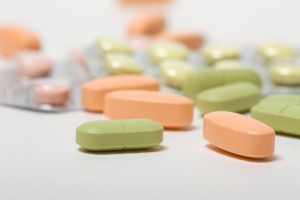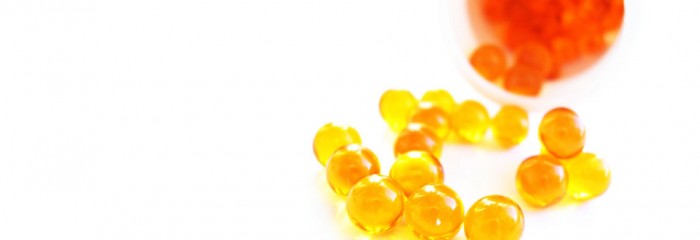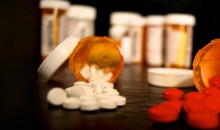People with high cholesterol or those at high risk for heart disease and heart attack, making major lifestyle change may have probably been advised by the doctors in order to lower the level of cholesterol. Even with the changes in lifestyle, some still needed statin drugs which lowers cholesterol level. Dietary supplements are also recommended.
Top cardiologists do agree that supplements can be very good to keep a healthy heart. Some of the supplements which benefit the heart are:
- Plant sterols
- Fish oil
- Fiber (psyllium)
- Niacin
- Red yeast rice
- B-Complex vitamins (B6, B12, folic acid)
- Policosanol
- Green tea extract
- Coenzyme Q10
 It is a must to check with your doctor before taking any supplements since may have contra indications with the other drugs you are taking. Pregnant women for instance are not allowed to take supplements as these may have effect on the pregnancy or breastfeeding. Make sure that the supplements are approved by the United States Pharmacopoeai or USP, which means that the active ingredients contained range from 95% to 100%.
It is a must to check with your doctor before taking any supplements since may have contra indications with the other drugs you are taking. Pregnant women for instance are not allowed to take supplements as these may have effect on the pregnancy or breastfeeding. Make sure that the supplements are approved by the United States Pharmacopoeai or USP, which means that the active ingredients contained range from 95% to 100%.
Omega 3 Fatty acids, which are derived from fish oil, flaxseed oil and algae oil, significantly reduce triglyceride level and increase HDL (good cholesterol). Omega 3 has consistently shown to enhance the health condition of the heart. They have anti-inflammatory agents which can prevent diseases like Alzheimer’s and heart diseases when inflammation is controlled. Numerous research studies have shown that regular eating of oily fish like salmon or taking of fish oil supplements for people with a history of heart attack have helped them reduce heart rhythm problems, heart attack and sudden death. Chest pains are also greatly reduced.
Fish oil supplements reduce triglycerides by 25% – 50%. The only thing to be cautious about is its mercury content. Only fish oil supplements tested free of mercury should be taken.
- Vitamin B3, nicotinic acid or niacin, is an effective supplement to counter high cholesterol. Proven to increase HDL and decrease triglycerides, this is a common prescription given to patients with blood pressure problems. Studies show that niacin can act better than statins in improving HDL cholesterol, increasing it by 15% – 30% and reducing triglycerides by 20% – 50%. Those who take niacin have shown no heart rhythm problems.
- Psyllium or ispaghula is derived from Plantago ovate husk seeds. Psyllium in supplement form or high-fiber foods can reduce total and LDL cholesterol. The effect of fibers on HDL or good cholesterol is not definitive although there are reasons to suggest that it may have helped improve HDL. 15 grams of Psyllium daily will reduce LDL by up to 9%. It enhances the effects of statins in lowering LDL cholesterol. Psyllium tends to affect the absorption of other medications so it is important that your doctor is consulted before taking this supplement.
- Red Yeast Rice is a specific yeast derived from rice. This is known to lower total and LDL cholesterol and triglyceride levels. It is also known to help in the prevention of heart attack and improve blood circulation. Red yeast rice contains monacolin K, a substance that has identical function to the active ingredient of statin drug Mevacor. Red yeast rice supplements work best with the right formulation. A beginning dose of 2400 mg a day should be tried for two months, afterwhich the cholesterol level should be checked for any changes. Your doctor needs to know the results after two months so he can recommend if there’s any need to change dosage or formulation.
- Green Tea Extract, made from dried leaves of a perennial shrub Camellia sinensis, is a Chinese traditional medicine which is said to decrease LDL by 16%. A beginning dose of 375 mg of theaflavin-enriched green tea extract every day is recommended.
- Vitamin B6, B12 and Folic Acids are known as the B vitamins. They are known to lower blood level of homocysteine, an amino acid which may be linked to blood clots, heart disease, strokes and heart attacks. A doctor who has specialized understanding of lowering homocysteine with B vitamins should be consulted to avoid any complication concerning osteoporosis and cognitive decline which are prevented by homocysteine.
- Coenzyme Q10 is produced by the body to help with the cells basic functioning. Studies showed that CoQ10 (coenzyme Q10) reduce angina or chest pains and help people with blocked blood vessel. Some doctors would recommend CoQ10 for people taking statin drugs to help prevent muscle pains or damage to the liver which are direct results of taking statins.
Supplements are not the cure-all treatment for diseases. Given that they help in improving one’s health, changes in one’s lifestyle. A well balanced diet and a healthy lifestyle will all have positive effects on one’s heart health.











